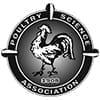New Study Highlights Risk in Consuming Undercooked Turkey Livers - Interpretive Summary
Published: July 29, 2021
By: https://poultryscience.org/
by Sam Shafer
Properly cooking poultry products is key to avoiding bacterial infections such as Campylobacter, so there are concerns that the recent popularity of undercooked chicken livers, often served as a pâté, could lead to foodborne illnesses.
Poultry scientists are curious whether the same concern is relevant for turkey livers—an important question as turkey consumption continues to grow in the United States.
To better understand the risk of Campylobacter infections from turkey products, poultry scientists with the U.S. Department of Agriculture (USDA), Agricultural Research Services (ARS) recently investigated how Campylobacter jejuni bacteria disseminate in the turkey digestive system. Their findings were reported recently in the journal Poultry Science®, published by the Poultry Science Association.
The researchers had led a previous study showing that certain strains of C. jejuni persistently colonize turkeys with the highest density in the ceca, pouch-like organs in birds located where the small and large intestines meet. The team then wanted to know whether the bacteria disseminate to the liver after colonizing the intestines.
For the new study, the scientists studied the intestines and livers of turkey poults at three different timepoints. One group was studied on day 1. The other two groups were either inoculated with C. jejuni or mock-inoculated, and then harvested at days 7 or 14 of the experiment.
The researchers determined that turkey liver is a potential reservoir of C. jejuni following intestinal colonization.
“The data presented here extend our knowledge of the presence of Campylobacter in poultry liver parenchyma to include experimentally colonized turkey poults,” write the study authors. “Contamination of turkey liver products used for human or pet food may need to be considered as a source of foodborne pathogens, such as Campylobacter.”
The researchers note that the composition of a turkey’s intestinal microbiome may also impact extraintestinal dissemination by Campylobacter. They believe future studies into specific microbes that might limit extraintestinal Campylobacter dissemination could help define a probiotic option to promote food safety.
The full paper, titled “Detection of Campylobacter jejuni liver dissemination in experimentally colonized turkey poults,” can be found in the Poultry Science® and online here.
DOI: 10.1016/j.psj.2020.03.042
Source
https://poultryscience.org/Related topics:
Mentioned in this news release:

Recommend
Comment
Share

Would you like to discuss another topic? Create a new post to engage with experts in the community.



